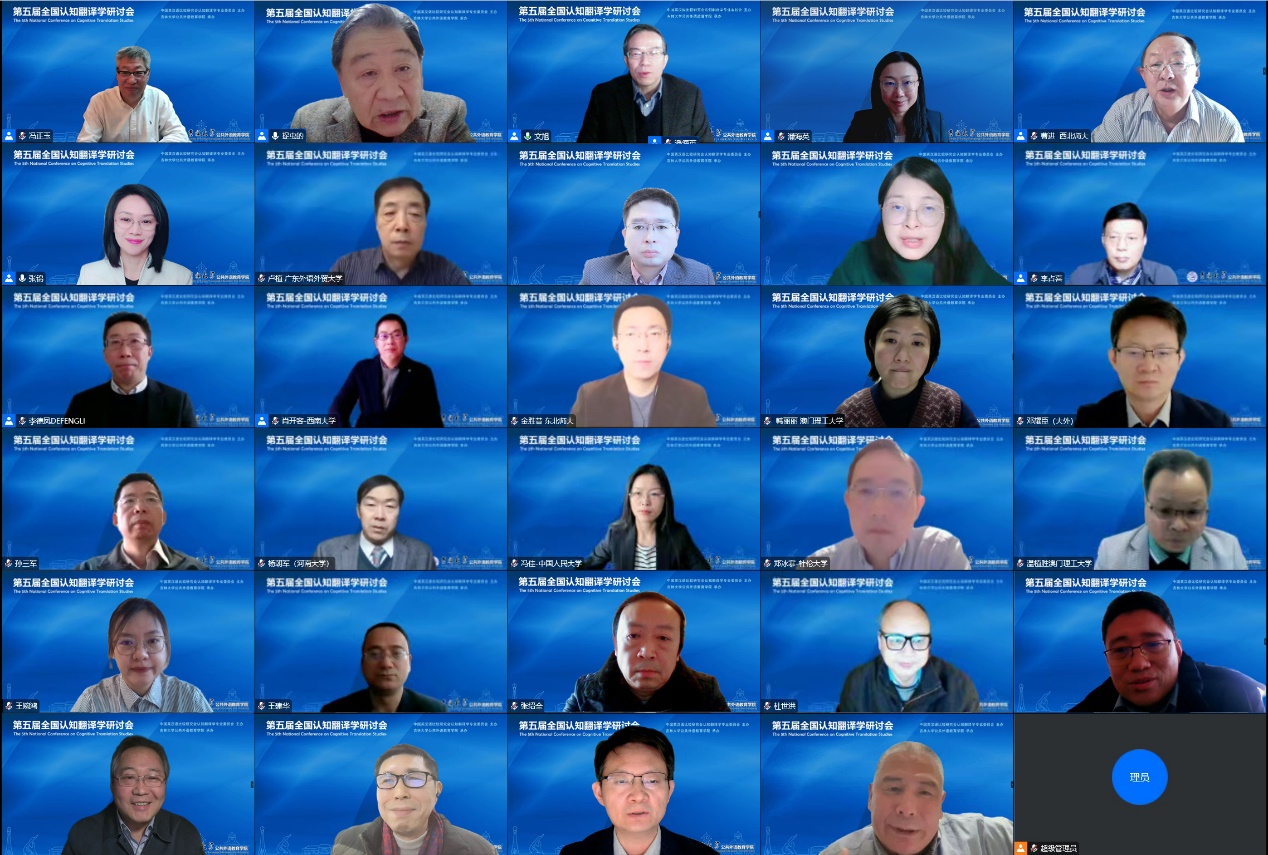In order to further deepen the development of cognitive translation studies in China, enhance the discussion and exchange between domestic and foreign scholars in this field, and promote the construction of new liberal arts in our university, the "Fifth National Cognitive Translation Seminar", sponsored by the Professional Committee of Cognitive Translation Studies of the Chinese Association for Comparative Studies of English and Chinese, and hosted by the School of Foreign Language Education of Jilin University, was successfully held online from December 24 to 25, 2022. The theme of this conference is "Cognitive Translation: New Progress in Translation Studies". Nearly 40 experts in the field of cognitive translation research from the University of Macau, Tsinghua University, Beijing Foreign Studies University, Southwest University, Northeast Normal University, Shanghai University, Dalian Foreign Studies University, Durham University, Renmin University of China, Shanghai Jiaotong University, Shanghai Foreign Studies University, Guangxi University, Guangdong University of Foreign Studies, Macao Polytechnic University, Shandong University, Jilin University and other universities attended the meeting. The number of participants reached more than 500. The forum was divided into two parts: the keynote report and the report of young scholars.
General Secretary Xi emphasizes that it is an important task to strengthen the construction of China's international communication capacity to tell the story of China, spread the voice of China, and display a true, three-dimensional and comprehensive China.
Against this background, this meeting was held in the process of continuous promotion of the construction of the new liberal arts. Experts and scholars at home and abroad expressed their views on hot issues such as the construction of cognitive translation theory, cognitive translation and cultural communication, cognitive translation and the construction of foreign discourse. They spoke freely, shared wisdom, stirred up ideas, and talked about the future. They contributed unique Chinese spirit, Chinese values, and Chinese strength to the construction of cognitive translation and the new liberal arts in China.
